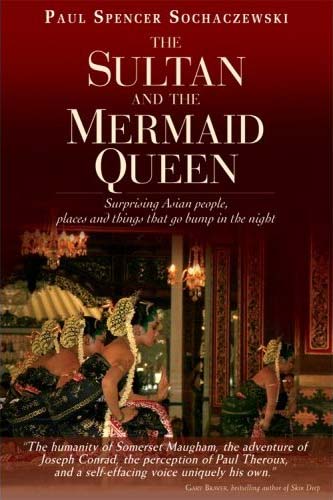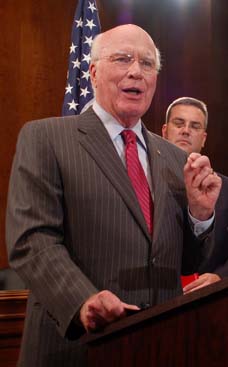
As Rudyard Kipling wrote, "All things considered there are only two kinds of men in the world - those that stay at home and those that do not." Bangkok-based Paul Spencer Sochaczewski, who first arrived in Sarawak in 1969 as a US Peace Corps volunteer, is undoubtedly of the latter category. From the perspective of a traveller, a journalist, a conservationist and a fan of Asia, he uses humour, a great store of background knowledge and the storyteller's art to look in forgotten corners and convey a side of the continent that many fail to find.
Malaysia RPCV Paul Sochaczewski ,Journalist and conservationist finds forgotten corners of an elusive continent
A romp through Asian quirks
Journalist and conservationist finds forgotten corners of an elusive continent
Writer: EZRA
Published: 17/08/2009 at 12:00 AM
Newspaper section: Outlook
As Rudyard Kipling wrote, "All things considered there are only two kinds of men in the world - those that stay at home and those that do not." Bangkok-based Paul Spencer Sochaczewski, who first arrived in Sarawak in 1969 as a US Peace Corps volunteer, is undoubtedly of the latter category. From the perspective of a traveller, a journalist, a conservationist and a fan of Asia, he uses humour, a great store of background knowledge and the storyteller's art to look in forgotten corners and convey a side of the continent that many fail to find.
The Sultan and the Mermaid Queen is a collection of vignettes, columns and short essays from around Southeast and South Asia, especially the Indonesian archipelago. Sochaczewski finds the quirky in the mundane, seeks out oddities and anomalies in the natural world and the human condition, and even when he doesn't find what he's looking for the search itself becomes a fascinating story. The author has a knack for seeing the extraordinary in the ordinary, finding the unique in the everyday.
Presented in a journalistic style - each short chapter has a headline-like title and blurb - the book's essays avoid complication through overanalysis or judgement to focus on the people, legends, nature and geography that make Asia what it is. The collection thus becomes more an intimate portrait of parts of the continent than a standard collection of traveller's tales or journalistic studies.
We're introduced to an Indian village, for example, where people still harbour a grudge against Hanuman, the monkey god who "stole" one of their mountains. We meet the last elephant hunter of Vietnam and the "real" last Emperor of China, find a lucky island and the world's highest golf course. We look into the disappearance of Bruno Manser, a Swiss Robin Hood who vanished in the jungles of Sarawak while trying to help the Penan tribe.
And of course there's the Sultan of Yogyakarta and the Mermaid Queen. This is one of the longer chapters, with ancestry, tradition, political legitimacy and the supernatural featuring in a sort of ghostly love story. When Sochaczewski asks the pragmatic and cosmopolitan Sultan how he can pay homage every year to a mermaid-like spirit, he is told "You're asking a Western question, expecting a Western answer. You either accept it or you don't."
We learn how a Borneo longhouse won a political victory over the government and Big Timber, discover a village of amulet dealers in the Philippines, ponder the intelligence of orangutans. We examine ethnic headhunting, the plight of mother-of-pearl divers in Indonesia who drown when they're given poor equipment by unscrupulous Chinese traders, how "miracle rice" bleaches Bali's coral reefs, how Indian religious leaders teamed up with conservationists to protect Krishna's birthplace and wonder if "green golf" is an oxymoron (golf receives a lot of coverage in these pages).
Sochaczewski delves into the symbolic power of the white elephant in Burma and Thailand, introduces Indonesian kris daggers endowed with magic, ponders the human and fellow primate need to discover, to travel, to find others like and unlike us.
The penultimate section is perhaps the most gripping, as eight essays have a single subject: Alfred Russel Wallace, the biologist who wrote letters and papers on "survival of the fittest" and natural selection that predated and perhaps greatly influenced Charles Darwin's On the Origin of Species, the theory of evolution that revolutionised the way we look at our place in the universe. We're transported back in time and develop an intuitive feel for Wallace's interests, locations and discoveries.
Much of the work in the collection was first published in the International Herald Tribune, The Wall Street Journal and CNN Traveller. The only problem with this is that there is a fair amount of redundancy; for example, the Hanuman legend or Alfred Russell Wallace are reintroduced a number of times, and a stronger editorial scalpel could have excised these to streamline the collection and improve narrative flow (and catch a number of typos).
One unjournalistic aspect of the pieces is the strong narrative voice. At first it might seem there is a little too much of the author in each story - his is an inescapable presence - but quickly this turns into a positive; in a collection of disparate essays with little thematic cohesion, this voice - sympathetic of its subjects, quirky and likeable - becomes the essential thread that weaves the stories together and provides unity. The author's enthusiasm - such as for the discoveries of new species, for preserving natural habitats, observing birds of paradise or Komodo dragons, conserving traditional ways of life and taking the side of the underdog - becomes contagious.
Sochaczewski throughout the book has a special interest in the unexplained and unexplainable (mermaid spirits, lightning teeth, sorcerers, shaman). While he is sceptical of many "things that go bump in the night", he's intrigued when he discovers things that rationality can't easily explain away. Even when he fails to find that lost civilisation, the missing link or the evolutionary oddity, the search itself becomes a compelling story. He misses out on the tiger magicians, or the lost white tribe of giant cannibals in Halmahera, finds only normal human beings but discovers a truth of human nature - a tendency for every group to find another group, real or legendary, to denigrate. As Sochaczewski amusingly paraphrases: "It ain't us boss. We're cool, but if you go over the next hill, towards the rainbow, you'll find some really bad dudes."
In the introductory section Sochaczewski comments that "Every day in Asia I realize that I will hear of an occurrence that I not only do not understand but in a dozen lifetimes would have no hope of comprehending."
Many of those who have long been fascinated by the continent, and found that it doesn't always play by Cartesian rules, will be able to relate.













